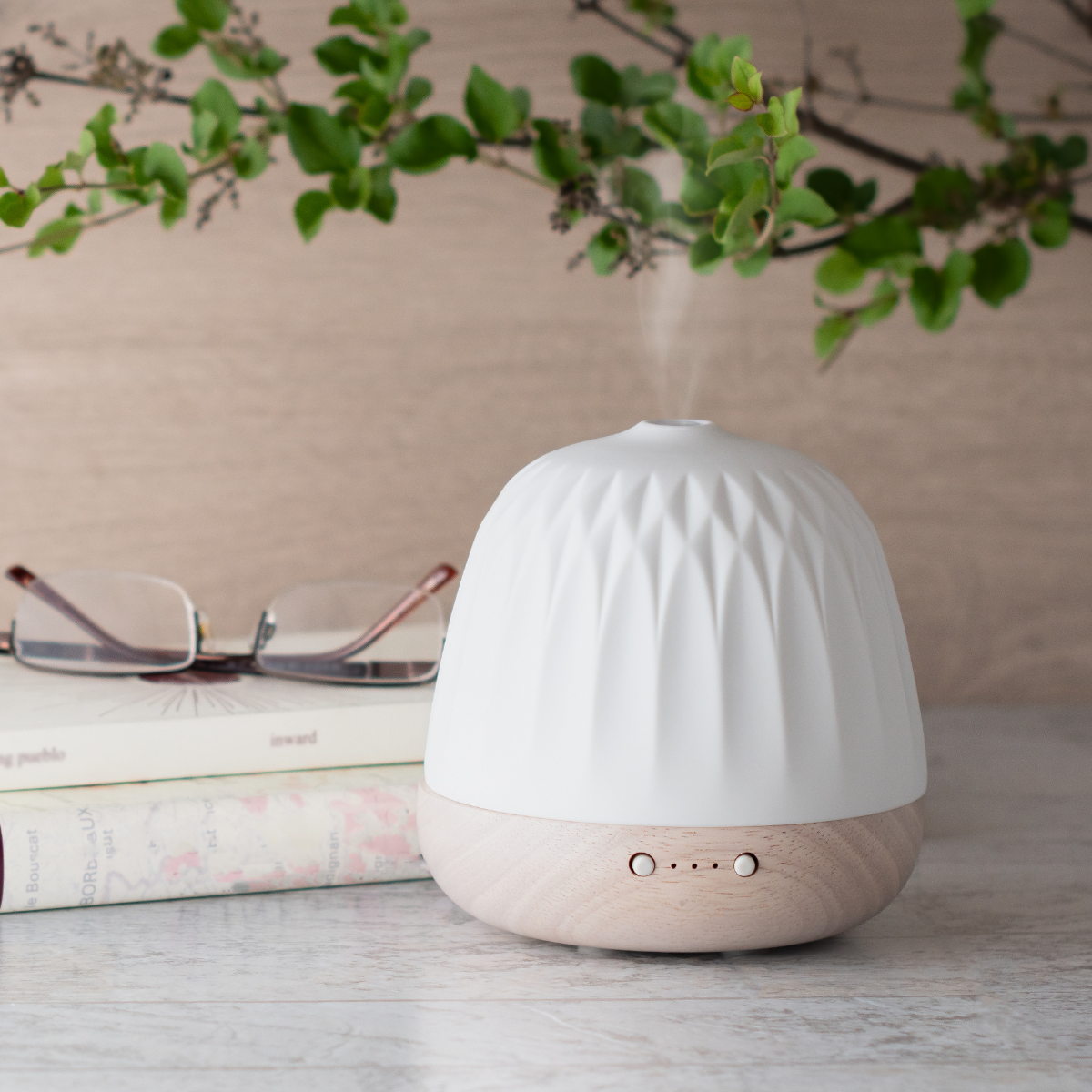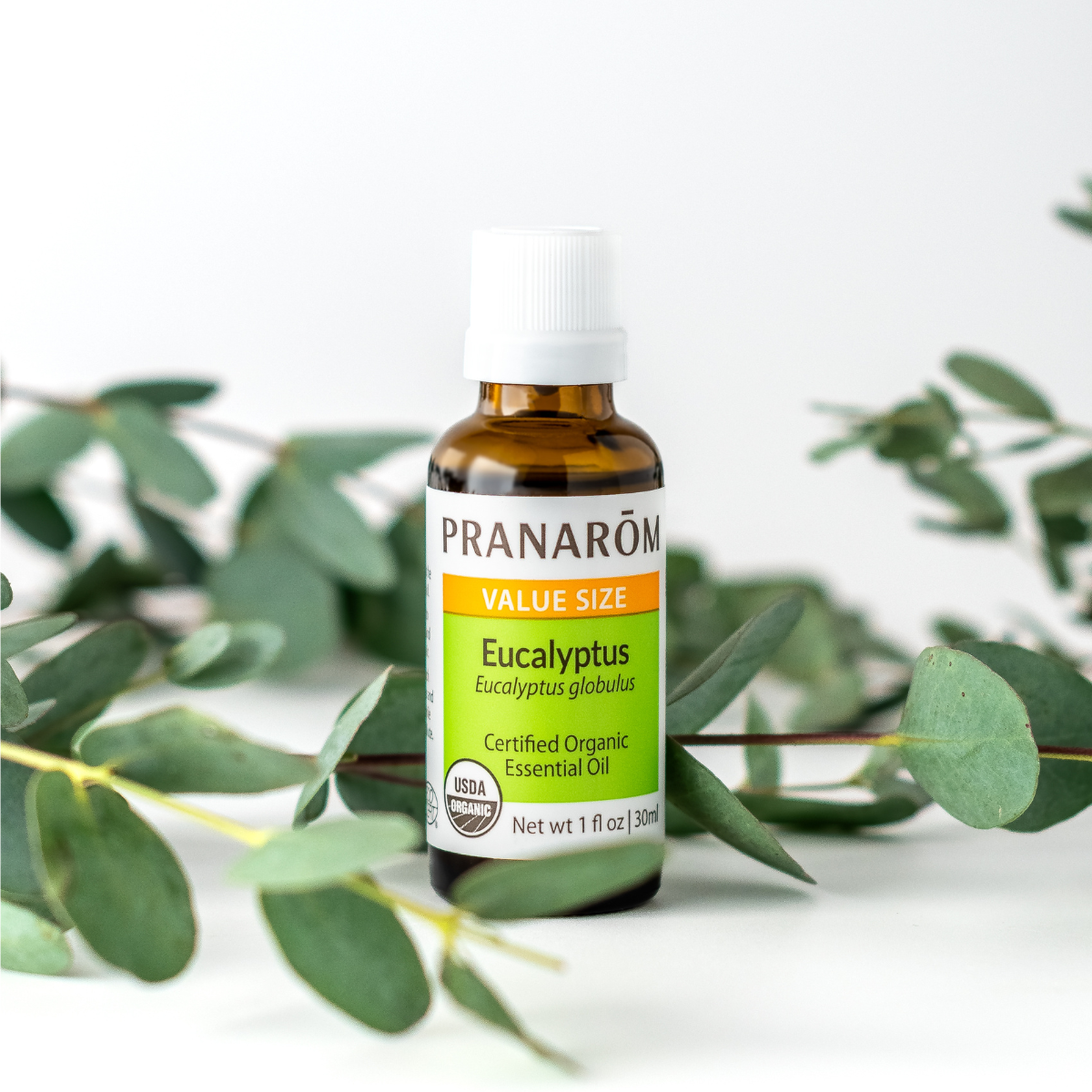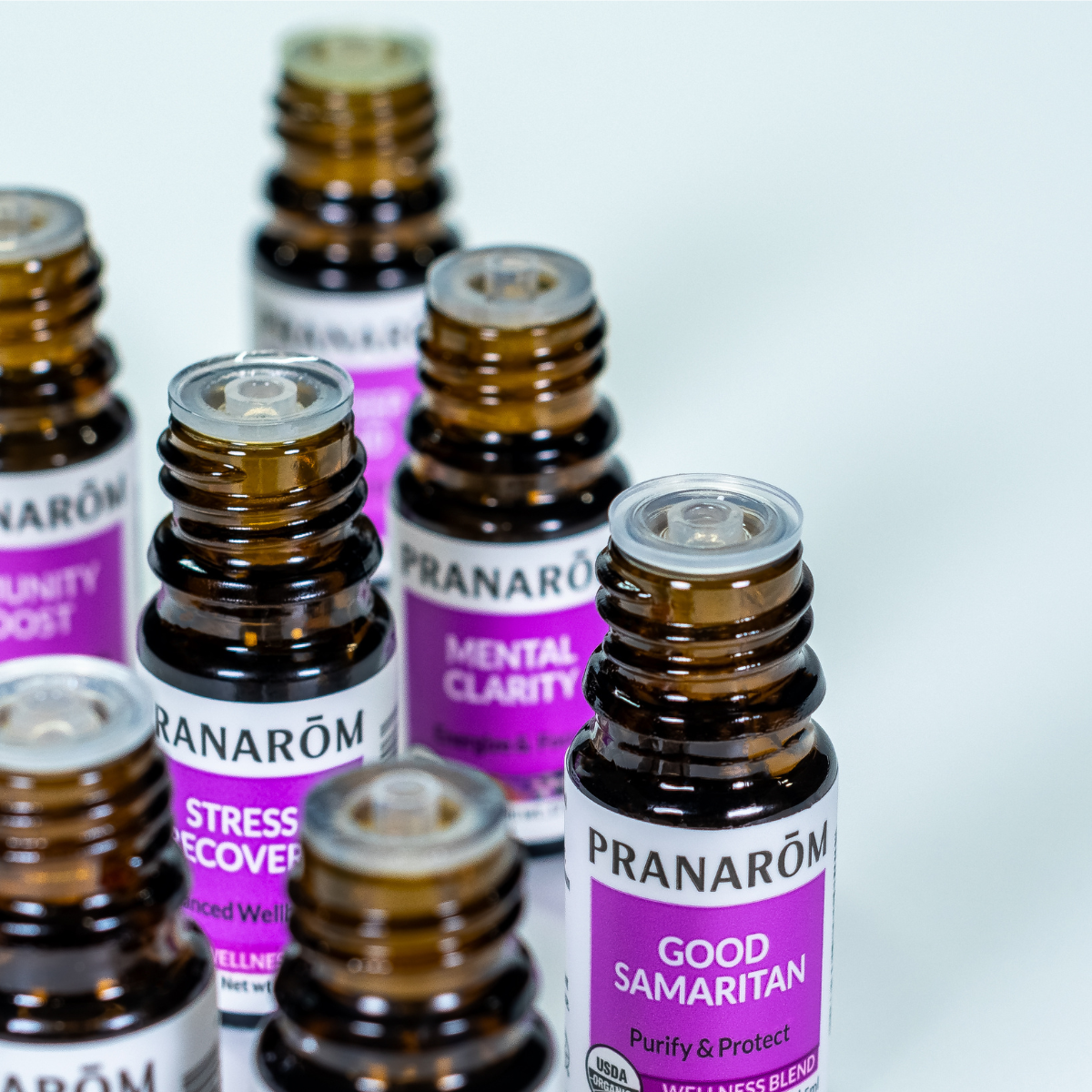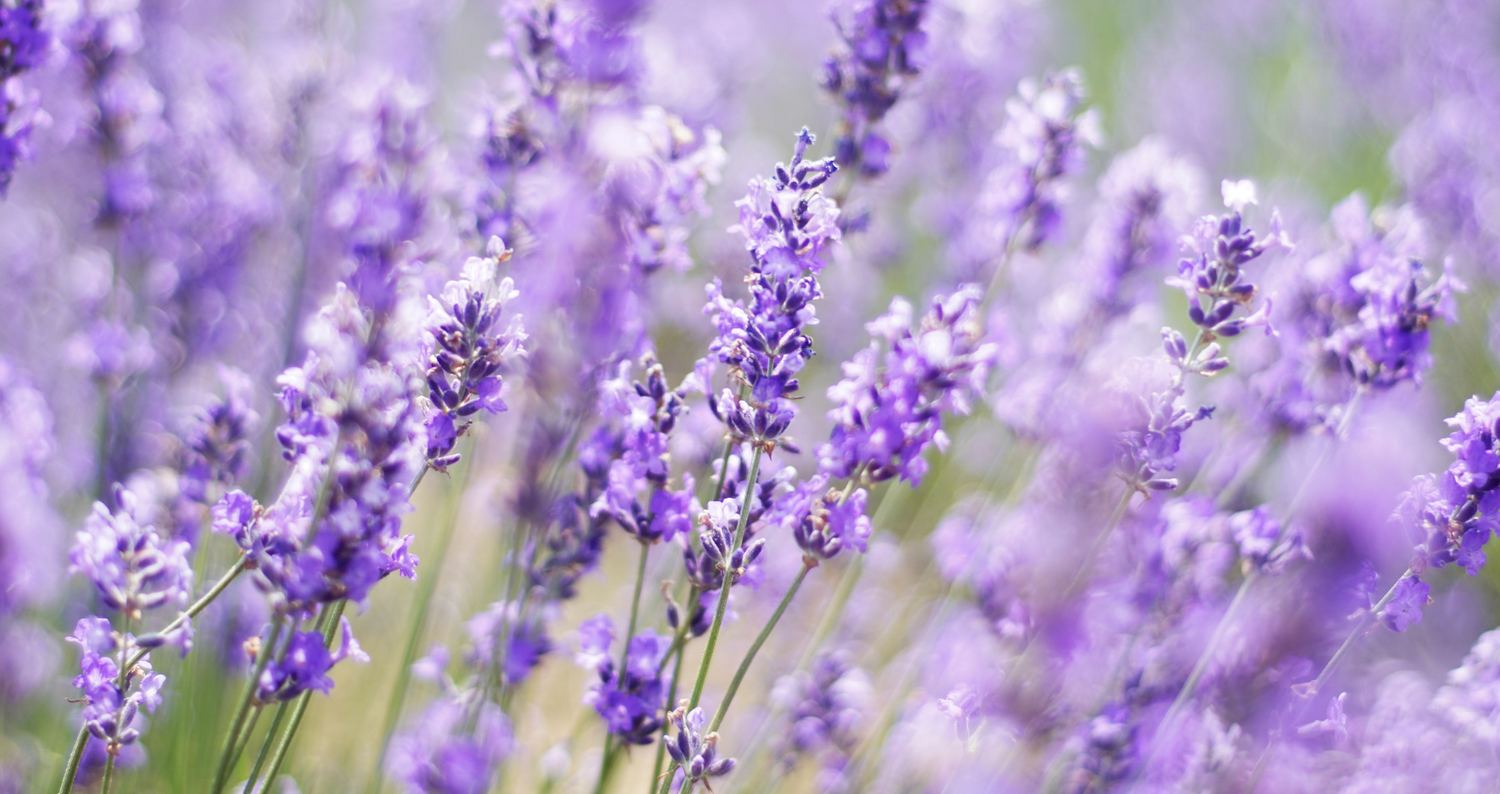There is a whole range of essential oils available for stress. So how do you choose? There are several factors to take into consideration: the scent you prefer, the method of application that suits you best, and the specific benefits you're after.
Methods of Application:
Each essential oil has its own methods of application. When choosing an essential oil, we always recommend considering how you will incorporate it into your daily routine. You'll want to pick an essential oil and a method of application that fits your lifestyle and habits so that it's readily available when you need it.
Diffusion
Ultrasonic diffusion (with water) allows the volatile fragrance of essential oils to spread to our olfactory neuroreceptors. The magic of this process lies in the direct link between these neuroreceptors and our limbic brain where emotions and affective memory are stored. In other words, essential oils speak directly to our subconscious mind. They are an ideal solution to help work on emotional reactions that seem irrational or simply to promote a positive atmosphere that encourages anything from relaxation to good communication.
Olfaction
Olfaction, like diffusion, allows you to touch the limbic brain but, this time, with even more acuteness since the breathing linked to this method is done more consciously and purposefully than with diffusion.
Olfaction includes two options: palm inhalation and straight up inhaling an essential oil's aroma from the bottle. Both methods involve taking a few moments to focus on your breath, inhaling the essential oils deeply, then exhaling. Repeat 5 times.
Cutaneous (Topical)
The skin and the nervous tissue originate from the same embryonic layer: what impacts one will impact the other. We see this with massage: touching the skin can impact the emotions and nervous system. If, in addition, you add specifically selected essential oils to the massage oil, you will intensify the effect.
Essential oils can also be applied to strategic areas of the body, such as your pulse points (wrists and neck) and the soles of your feet, which allow the essential oils and their benefits to be quickly absorbed into the blood stream.
3 Essential Oils for Stress
Bergamot Essential Oil
Bergamot essential oil's complex citrus scent is both uplifting and deeply soothing. Citrusy, sweet, spicy, and floral all at once, it is pure joy in a bottle.
Because Bergamot essential oil contains bergapten, a constituent which can potentially cause photosensitivity, we recommend either diffusing the oil or inhaling it from the bottle.
Lavender Essential Oil
Lavender essential oil, or Lavandula angustifolia, has been renowned for centuries for its calming abilities. We offer two varieties of Lavandula angustifolia: our basic Lavender essential oil and our Lavender Reserve essential oil. Grown in different altitudes of Provence, each oil has its own unique fragrance. Both, however, are very effective when it comes to promoting relaxation.
Lavandula comes from the Latin verb "lavo," which means "to wash." This makes sense considering Lavender's refreshing benefits when it is diffused or used topically (try using it as deodorant!). It can be used in diffusion, olfaction & massage. Very gentle, apply it neat or blended with a virgin plant oil.
To promote relaxation before sleep, try diffusing 4-6 drops of Lavender essential oil in your ultra-sonic diffuser. You can even sprinkle a few drops on your pillowcase if you don't mind a few tiny discolorations. You can also massage 4 drops of Lavender onto your solar plexus before going to bed.
Do you sometimes wake up with sudden cramps? Massaging the area with a couple drops of Lavender can help the muscles relax.
Roman Chamomile Essential Oil
Also called Nobile Chamomile, Roman Chamomile was considered sacred by the ancient Egyptians. Very powerful, Roman Chamomile helps to release and calm tension, as well as the behavioral results of tension (irritability, angst, etc..). It offers calm if you are on edge and encourages that famous "letting go."
The oil can be used for diffusion & olfaction, but its rather powerful scent is best blended with other calming essential oils (try floral, citrus or herbaceous oils).
Another method is to massage Roman Chamomile into your solar plexus or back. For adults, 1-2 drops neat should be fine, but for children (ages 18 and under) make sure to dilute in virgin plant oil at 4% or less.










